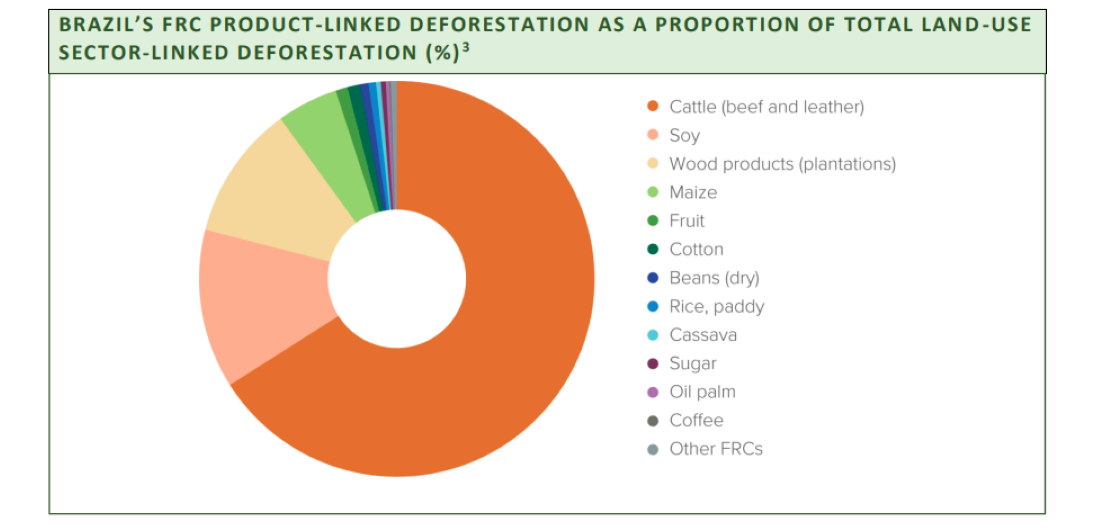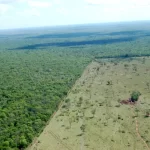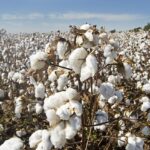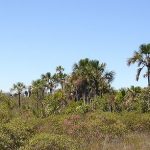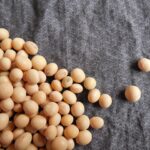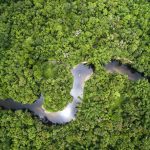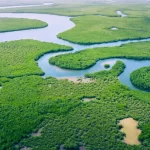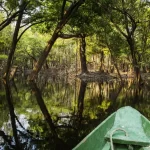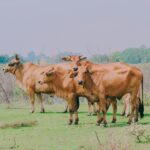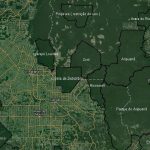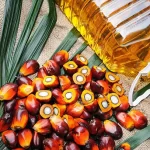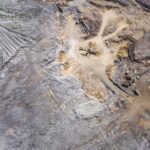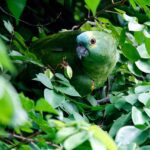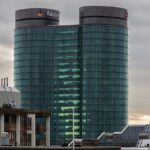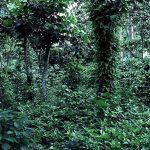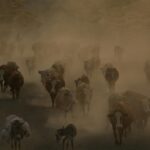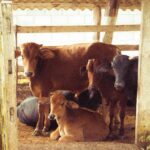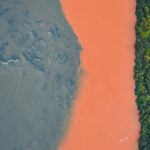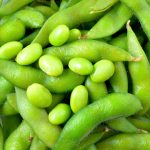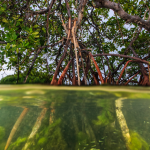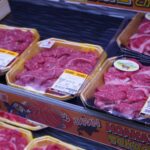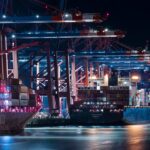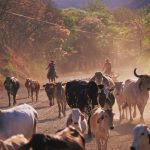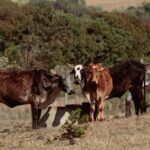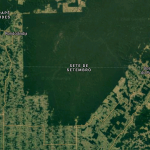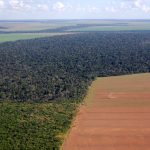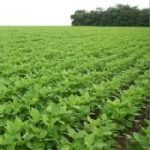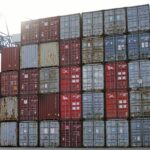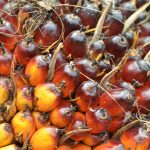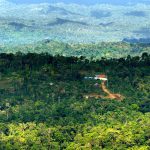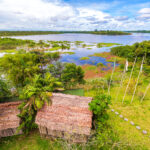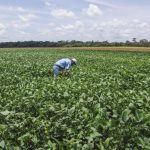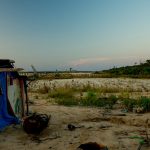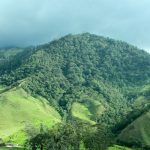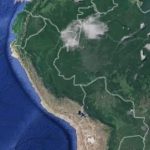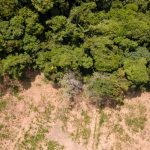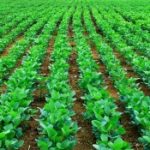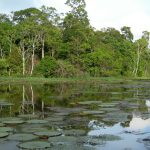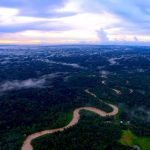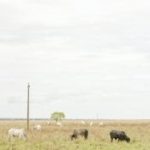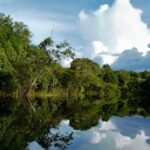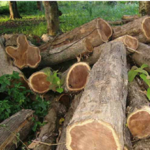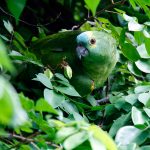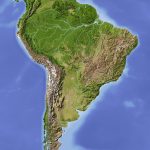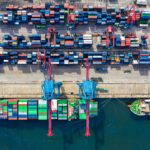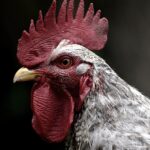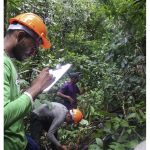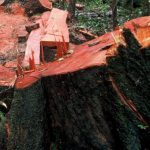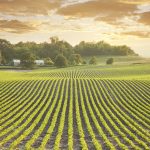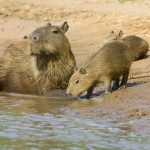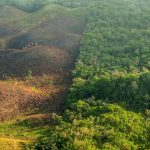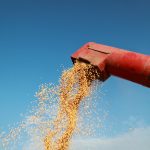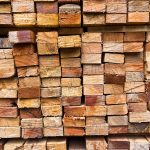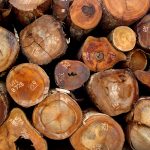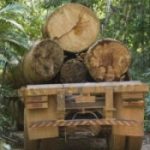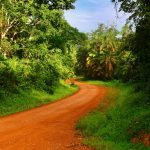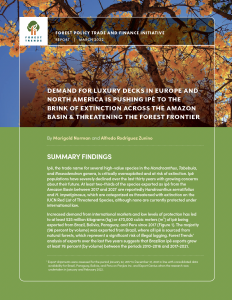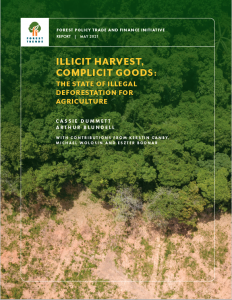Timber
Other Forest-Risk Commodities

TIMBER LEGALITY RISKS
Illegal logging has soared since 2012, particularly in natural forests. In 2020, deforestation in Brazil’s Amazon rose to its highest level in more than a decade, and reports indicate that forest clearances in Brazil’s Amazon region rose 17 percent in the first six months of 2021. While Brazil saw dramatic reductions in deforestation and illegal logging in the period between 2000 and 2012 as a result of strong political commitment, conservation measures and enforcement efforts, there have been well publicized concerns about the scale of forest destruction (deforestation and forest degradation caused by logging) in the Amazon over the last few years.
- Illegal logging is widespread and a high percentage of Brazil’s timber has been reported to be illegal.
- Illegal logging and land grabbing are highly associated with violent conflicts in rural and indigenous communities, often driven by organized criminal networks.
- High-value species from natural forests are at an elevated risk for illegal harvest.
- Fraud and corruption are common and there is a risk that illegal timber is laundered into supply chains for all species.
- Despite several high-profile enforcement operations that revealed systemic fraud and illegal logging, enforcement is limited in capacity and has been weakened further under the current political administration.
- There have been widespread reports about the weakening of laws and requirements, some retroactively, applying to timber exported to international markets from Brazil.
- There is also a high-risk of tax evasion for timber products from Brazil.
- Interpol and the EU Member States have issued high alert warnings for illegal timber from Brazil.
- Illegalities related to ownership of land and land conversion are a risk for timber sourced from Brazil.
Read more by downloading the Brazil Timber Legality Risk Dashboard here.
FRC LEGALITY RISKS
Illegal deforestation has soared since 2016, particularly in natural forests. In 2020, deforestation in Brazil’s Amazon rose to its highest level in more than a decade, and recent reports for January-March 2022 indicate that forest clearances in the region are the highest ever recorded. While Brazil saw dramatic reductions in deforestation and illegal clearances in the period between 2000 and 2012 due to strong political commitment, conservation measures, and enforcement efforts, there have been well publicized concerns about the scale of forest destruction (deforestation and forest degradation caused by logging) over the last few years.
Illegal land grabbing has been found to be highly correlated with conversion of forest land for agricultural commodities, particularly for cattle and soy, the largest drivers of deforestation in Brazil. At least 88 percent of deforestation is due to commercial agriculture, of which 95 percent is likely illegal, often in violation of the Legal Reserve (LR) forest conservation quotas established by Brazil’s Forest Code.
- Deforestation has soared since 2016, with illegal conversion of primary forests for agriculture reported across the Amazon and Cerrado biomes, and increasingly in Caatinga. Reports indicate that at least 95% of the deforestation for agriculture is illegal.
- Expansion of commodity agriculture development often stands in direct opposition to conservation efforts, but this already delicate balance is tipped by perverse incentives within Brazil’s legislative framework that give little value to land not in “production,” thus leading to extremely high rates of forest conversion.
- The main illegal agro-conversion risk associated with commodity production in Brazil involves operators failing to obtain the necessary permit issued by the Environmental Agency for clearing native vegetation.
- Land grabbing is highly associated with violent conflicts in rural and indigenous communities and is often driven by organized criminal networks.
- Forest loss is highest in the cattle industry (beef/leather), mainly for the domestic market.
- Around 20% of Brazil’s land-use sector-driven deforestation is for export-oriented cash crops, primarily soy and maize and, to a lesser extent, sugar and coffee.
- There have been widespread reports about weakened environmental laws and requirements over the last few years, and enforcement capacity is limited.
- Brazil’s forest-risk agricultural commodities are exported globally, with all markets exposed to illegal deforestation risk.
- While it has signaled some high-level support for reducing future deforestation at the 2021 United Nations Climate Change Conference of the Parties (CoP26), efforts continue in Brazil to legalize land grabbing and illegal deforestation.
Read more by downloading the Brazil Timber Legality Risk Dashboard here.
Beto Borges, Director of our Communities and Territorial Governance Initiative, speaks with André Lima, Brazil’s Secretary for Controlling Deforestation and Controlling Territorial Ordinance within Brazil’s Ministry of Environment. Together, they discuss Brazil’s efforts to reduce deforestation and how they intersect with the EU’s Deforestation Regulation coming into play at the end of this year.
This new report shows that domestic demand (particularly from the more developed Brazilian centre-south) imposes a much stronger pressure on the Amazon’s deforestation than local (within the Amazon) and foreign export demand.
Acknowledging domestic markets as a critical driver of changes in forest cover in the region emphasizes the need for increased engagement by national and transnational stakeholders operating in national markets in Brazil.
According to a former employee, data is repeatedly manipulated at Better Cotton, the world-leading cotton sustainability programme used by H&M and Zara. The supply chains of H&M and Zara and cotton produced by agribusiness giants SLC Agrícola and the Horita Group. SLC and Horita are connected to illegal deforestation, land grabbing and conflicts with traditional communities in the Brazilian Cerrado.
The Soft Commodities Forum (SCF) will expand land use monitoring and reporting to the entire Cerrado biome, covering over 200 million hectares (Mha). Starting with 25 municipalities in 2019, the SCF’s monitoring and reporting included bi-annual reports on sourced soy volumes and farm-level traceability. These municipalities were selected to prioritize the SCF’s efforts in areas with the greatest deforestation risk linked to soy cultivation. From 2024 onwards, the SCF will further broaden its monitoring and reporting scope to the entire Cerrado biome and implement an enhanced risk assessment methodology for classifying non-traceable soy.
China’s largest food processor and manufacturer COFCO International has delivered its first shipment of deforestation- and conversion-free (DCF) Brazilian soyabeans, World Grain reported. Delivered on 31 May to Tianjin, China, the 50,000-tonne shipment of DCF soyabeans was part of an agreement with the Mengniu Group, the 4 June report said.
As a major exporter of Brazilian soyabeans, COFCO International said it was taking steps to improve traceability, risk management and supplier performance. COFCO has set a target of achieving a deforestation-free soyabean supply chain by 2025 and to reduce emissions from land use change in line with its climate strategy.
On June 5, the Brazilian Federal Police launched a raid targeting the proponents of some of the largest carbon credit projects in the Brazilian Amazon. The Greenwashing Operation focuses on the group of Ricardo Stoppe, cited in late May in a Mongabay investigation for its links with an alleged illegal timber scam. In the country’s largest investigation ever done on this matter, authorities found that the group had installed projects in land-grabbed areas, making 180 million reais ($34 million) from the selling of “rotten” carbon credits.
Also reported here: Verra suspends carbon credit projects following police raid in Brazil (mongabay.com)
With the expansion of areas designated for sustainable forest management (SFM) in the State of Mato Grosso in the Amazon Region, , annual timber production can reach around 7 million cubic metres. This is according to the criteria established in environmental legislation that ensures proof of origin, traceability and quality assurance. The State Environmental Secretariat (SEMA) of Mato Grosso has indicated there are opportunities to expand the area under SFM to 7 million hectares thus ensuring the conservation of natural resources and promoting socioeconomic development by generating employment and income distribution in the region. The forest sector in Mato Grosso has declared it is committed to implementing a certification model that provides greater security for the market in acquiring timber products through compliance with the traceability system of the chain of custody. This involves mechanisms such as the System for the Commercialisation and Transport of Forest Products (Sisflora 2.0) and the Document of Forest Origin (DOF+ Traceability) which provide the means to track the native timbers from the forest to the final consumer. Mato Grosso regulation ABNT PR 1020 (Recommended Practice – Management of Natural Tropical Forest) came into effect in April this year. This is a standard that ensures sustainable forest management and establishes procedures for obtaining certification, including a certification seal of origin for the products. See: https://cipem.org.br/noticias/mato-grosso-trabalha-aimplementacao-da-certificacao-dos-produtos-madeireiros
Two major carbon offset projects in the Brazilian Amazon, whose credits have been sold to companies like GOL Airlines, Nestlé, Toshiba and PwC, may have been used to launder timber from illegally deforested areas.
The conclusion comes from an analysis by the Center for Climate Crime Analysis (CCCA), a Netherlands-based nonprofit founded by prosecutors and investigators that investigates emitters of climate-warming greenhouse gases. Brazilian authorities had already launched timber laundering probes in the areas covered by CCCA’s analysis, which resulted in the suspension of logging authorizations. The owner of a company responsible for one of these projects has a prior conviction for timber laundering.
During a 2023 visit to Beijing by the Brazilian president, Luiz Inácio Lula da Silva, the two countries set out ambitious goals for their future partnership, with a joint declaration pledging “to broaden, deepen and diversify” bilateral cooperation on climate issues, in areas such as renewable energy, electric mobility and green finance. Dialogue Earth spoke with analysts in Brazil for insight and perspectives from the country on five decades of bilateral ties with China, on the two nations’ environmental relations and future opportunities.
UNODC’s 2024 World Wildlife Crime Report has a case study on the illegal trade in rosewood, with a focus on Nigeria. Major players in the case study include China, India, Singapore, Mali, Guinea-Bissau, Brazil, Vietnam and Ghana.
Plywood imports from Vietnam have now tripled – with US cracking down on Chinese traders using Vietnamese ports to bypass trade regulations,
The vast majority of imports are made up of birch plywood (77% or 187,000 cubic metres), with Brazil (191,000 cubic metres), Indonesia (140,000 cubic metres), Chile (119,000 cubic metres) and Canada (114,000 cubic metres) responsible for the balance.
China is the primary destination for Brazilian exports of beef, pork, and chicken. There are a total of 144 authorized slaughterhouses in Brazil for export to China, with the majority owned by Brazilian JBS, the world’s largest meat producer. However, JBS has been associated with issues such as deforestation, conflicts, and environmental degradation in the Amazon rainforest and the Cerrado regions. In 2023, JBS was part of a delegation sent by Brazil’s President, Luiz Inácio Lula da Silva, to China, aiming to negotiate a new export agreement between the two nations.
The expected increase in exports of Brazilian beef to China highlights the limitations of global impact of policies such as the EUDR without cooperation from other major consumer economies.
Measures throughout 2023 to curb the illegal gold trade in Brazil led to a 20% drop in the country’s exports of the precious metal. In Itaituba, the hub of the Amazon illegal gold trade, taxes from gold sales fell by more than 90% in just the first quarter of this year.
Experts attribute this drop to police raids on illegal mining operations and on requirements for sellers to issue electronic invoices.
But they warn the illegal gold still persists, shifting to unofficial channels to evade the eye of regulators.
Despite the resumption of public environmental policies that have effectively slashed deforestation in the Amazon, degradation is on the rise as warnings have been issued for close to 163 thousand km² of the biome.

The figure is three times higher than the almost 58.5 km² reached by deforestation alerts registered by Brazil’s National Institute for Space Research (INPE) up to March this year.
Bloomberg reports on the growth of palm oil production in Latin America where new, highly traceable supply chains are being established as traditional palm oil giants Malaysia and Indonesia have run out of land for further expansion without deforestation.
Earthsight releases a new report claiming that fashion brands H&M and Zara use cotton linked to land grabbing, illegal deforestation, violence, human rights violations and corruption in Brazil.
The cotton is grown by two of Brazil’s largest agribusinesses – SLC Agrícola and the Horita Group – in western Bahia state, a part of the precious Cerrado biome, which has been heavily deforested in recent decades to make way for industrial-scale agriculture.
The overall rate of primary forest loss across the tropics remained stubbornly high in 2023, putting the world well off track from its net-zero deforestation target by 2030, according to a new report from the World Resources Institute.
The few bright spots were Brazil and Colombia, where changes in political leadership helped drive down deforestation rates in the Amazon.
Elsewhere, however, several countries hit record-high rates of forest loss, including the Democratic Republic of Congo, Bolivia and Laos, driven largely by agriculture, mining and fires.
The Council on Ethics to the Norwegian sovereign wealth fund has told Rio Tinto in recent months that it is assessing the mining company for environmental damage from its operations in the Brazilian Amazon. In the January letter, the council asked Rio Tinto for comment on its draft recommendation to exclude the company from Norway’s $1.6 trillion fund.
New research using Trase data shows that supply chain divergence to meet different consumer requirements already is a reality. Brazil’s exporters, for example, sell soy to Denmark and Norway that is four-times less exposed to deforestation than soy sent to China or used domestically.
The researchers interviewed companies from the Brazilian soy sector and confirmed such segmentation is both predictable and standard practice. While physical segregation of soy grains can be challenging, it has not been difficult for certain traders and regions exposed to very different levels of deforestation to specialise in markets that demand higher or lower levels of sustainability.
The Illegal Deforestation Risk Analyzer is an interactive tool designed to understand the scale of illegal deforestation within the Amazônia, Cerrado and Pantanal biomes in Brazil. Users can visually pinpoint where unlawful deforestation and enforcement fines are most prevalent, thereby gaining valuable insights into the regions at higher risk of business models that rely on growth through deforestation.
Brazil reports to the ITTO that its forest industries will soon have certification by the Brazilian Association of Technical Standards (ABNT). The ABNT has launched ‘Technical Standard PR 1020’ related to the process for verifying the traceability of the origin of wood in December 2023 and stressed that the focus is now on creating a certification seal for companies that meet this Standard. CIPEM pointed out that timber from the state of Mato Grosso complies with a strict traceability process guaranteed by a chain of custody system among other tools such as the System for the Trading and Transportation of Forest Products (Sisflora 2.0) and the Forest Origin Document (DOF+ Traceability) of the Federal government which aims to control and certify the origin of timber from natural forests along the supply chain. See: https://simenorte.com.br/noticias/industrias-de-baseflorestal-de-mato-grosso-fomentam-o-setor-em-eventos-no-riode-janeiro-2/
Fair Finance Guide Netherlands has published a new report analysing the financial links between Dutch financial institutions and 18 key players in the Institute Pensar Agro (IPA) and the agribusiness lobby in general. In the period 2019 – 2023, the three major Dutch banks Rabobank, ABN Amro and ING Group have provided US$ 1.89 billion in financing to these 18 key agribusiness players.
International buyers of wood products from 46 tree species identified and authorised in the State by environmental agencies generated US$120 million in 2023. The main markets were the United States (US$19.4 million), India (US$17.8 million), France (US$13.6 million) and China (US$ 8.6 million). In January 2024 the international trade in wood products from natural forest species was worth around US$6 million (India US$1.6 million), China (US$478,000), the United States (US$1.6 million) and France (US$ 934,200).
In the context of Brazilian exporting States, Mato Grosso ranks 4th. It accounts for 2.3% of Brazil’s international timber sales. The annual production capacity of the forest sector in the State of Mato Grosso is around 7 million cu.m of tropical timber coming from a total area of 4.7 million hectares The forest sector ranking 4th in job creation among the State’s manufacturing industries.
Experts, activists, Indigenous advocates and lawyers from Amazonian states have long pushed for a reform of the federal court system in Brazil. Their aim is to boost their representation in these tribunals, which are of special interest for the Amazon: much of the illegal activity in the region is intertwined with environmental, Indigenous, mining and land reform issues — all of which fall under federal jurisdiction. At present, cases of illegal logging, land grabbing, and invasions of Indigenous lands that find their way before the courts are usually decided by judges with little or no experience of living in the Amazon. Critics say these judges are often unfamiliar with the intricate mechanisms of crime and abuse in the rainforest.
The article features how the municipality of Lábrea in Amazonas state is an example of how the near-absence of federal justice in the region allows problems to fester. Amid this extreme remoteness, Lábrea has become one of the most dangerous places in Brazil. Land disputes abound, as do the practices of illegal logging and deforestation, while gunmen and smugglers act with brazen impunity.
This report by Global Witness shows how the 20 biggest banks in the EU have provided billions to companies linked to deforestation since 2016. This review shows that voluntary guidelines and individual commitments by financial institutions are unlikely to stop the financing of forest destruction.
As infrastructure projects and soy plantations pump up land values in the Brazilian Amazon, smallholders are selling up and moving to more distant frontiers, perpetuating a cycle of displacement and deforestation.
The isolated south of Roraima state has become a priority destination for these migrants, who buy land from informal brokers with questionable paperwork; much of the land has been grabbed from the vast undesignated lands of the Brazilian government.
Although the appetite for land grabs has diminished since the start of the Lula administration, the region has seen an increase in deforestation in recent years.
Last November, French NGO Sherpa filed a complaint with the National Prosecutor’s Office against French banks BNP Paribas, Crédit Agricole, BPCE, and Axa. It called for a criminal investigation into money laundering and concealment, arguing that the banks’ financial support for Brazil’s biggest beef companies was contributing to illegal deforestation in the Amazon.
When Russia invaded Ukraine in February 2022, sanctions swiftly followed, including a total ban on Russian timber imports into the European Union (EU) from July 2022. Belgium, one of the staunched supports of the EU ban, has become a profitable destination for Russian wood. Using a forensic laboratory at the Royal Museum for Central Africa in Tervuren, inspectors determined that several wood shipments from Russia had arrived in Belgium. The number of fines imposed for illegal harvests almost tripled in 2023.
“But an impediment is a distinct lack of inspectors,” Wynant said. “There are now fewer than five timber inspectors working full-time in Belgium, but there are 4500 timber importers,”according to the article .
A new study by the International Institute of Sustainability (ISS) examines the risk to Brazilian commodity exports by the EU’s Anti-Deforestation Regulation (EUDR). They find that coffee is Brazil’s most EUDR compliant crop.
Please use the sharing tools found via the share button at the top or side of articles. Copying articles to share with others is a breach of FT.com T&Cs and Copyright Policy. Email [email protected] to buy additional rights. Subscribers may share up to 10 or 20 articles per month using the gift article service. More information can be found here.
https://www.ft.com/content/4335c54a-a099-46c6-9d0f-2f8edff7dc8e
Brazilian beef group JBS is facing mounting opposition to its planned US share listing from politicians and campaigners, with New York officials now accusing it of “greenwashing”. The state’s attorney-general Letitia James announced she was suing the American arm of JBS last week, alleging that it misrepresented its environmental impact with “fake sustainability claims to boost sales”.
The New York state’s Attorney General is initiating a lawsuit against Brazilian meatpacker JBS for misrepresenting its environmental impact with “fake sustainability claims to boost sales”. A large part of the lawsuit focuses on JBS setting a net zero goal for 2040, but not to releasing a realistic plan to achieve that goal. A significant amount of the company’s emissions come from deforestation in Brazil to clear new land for cattle grazing.
The destruction of the Cerrado is closely linked to the growing demand for meat and dairy. This report shows that some of the world’s largest investment funds that have put billions into buying farmland in the Cerrado, including pension funds in Sweden and Germany, Harvard University’s endowment, and the Teachers Insurance and Annuity Association, better known as TIAA, the $1.2 trillion pension fund for 5 million people across the United States. Thanks in part to its investments in Brazilian farmland, TIAA has become one of the largest farmland investors in the world. Through its wholly owned subsidiary, Nuveen Natural Capital, the fund has accumulated some 3 million acres across 10 countries. Its investments in Brazil, where it manages 1 million acres, are some of its most controversial holdings.
New research by Global Witness used public data to investigate ranching in Brazil’s cattle capital, Mato Grosso state, which straddles both Amazon and Cerrado biomes. GW found Cerrado clearances far outpaced those in the Amazon and Brazil’s three biggest meatpackers – JBS, Marfrig, and Minerva – play a key role in this deforestation.
European countries have led a new global trend on mandatory human rights and environmental due diligence (HREDD), advancing the EU’s growing global regulatory ambitions. Here, the authors analyse the prospects for successful externalisation of Europe’s sustainability standards – a ‘Brussels Effect’ – using Brazilian soy as a case. Their analysis exposes how the practice of supply chain divergence (i.e., the segmentation of exports tailored to different consumer requirements) can easily evade policy impacts and negate their additionality where Europe commands a minor market share.
The Development Bank of Latin America and the Caribbean (CAF) has announced an investment of US$25 million in Timberland Investment Group’s (TIG) reforestation strategy in Latin America. TIG, a subsidiary of BTG Pactual, aims to protect and restore around 150,000 hectares of deforested natural forests in Brazil, Uruguay and Chile. The initiative also aims to create sustainable and independently certified commercial forests to improve biodiversity and support inclusive community development. In line with its mission to boost sustainable development, CAF aims to become the region’s green bank committing to allocate US$25 billion in green financing by 2026 representing an increase from 24% to 40% of total approvals.
A bipartisan group of United States Senators are asking regulators to block JBS, the world’s biggest meatpacker, from being listed on the US stock market which would provide the company access to cheaper and more capital investments. The Senators are uniting behind this effort due to concerns over JBS’ track record of deforestation in the Amazon, but also over concerns about corruption settlements and its growing market share in the United States.
From 2016-2018, 94% of Germany’s directly imported deforestation risk was linked to just five key commodities: soy, coffee, palm oil, cocoa and cattle. More than 90% of this comes from nine countries, including Brazil Colombia, and Indonesia. Deforestation risk in Germany’s supply chains has varied over time, but has recently begun to emerge in particular hotspots, such as Colombia.
Deforestation risk can be concentrated in particular areas within hotspots: more than half of Brazilian soy deforestation risk comes from just three municipalities in the Matopiba region.
Agricultural expansion – a major cause of deforestation in Brazil – is still on the rise in parts of the country. Hardest hit is the Cerrado, a vast tropical savanna that is home to a wide variety of wildlife and a key source of water.
Satellite deforestation sensors issuing alerts for Cerrado rose 43% – a record.
CP Foods subsidiary, Bangkok Produce Merchandising (BKP), and Louis Dreyfus Company (LDC) have formalized a collaboration aimed at leveraging satellite mapping solutions and traceability data points to create sustainable and deforestation-free supply chains, specifically focusing on soy products.
The Brazilian government announced spending of 1.2bn reais (US$245mmn) for this year to combat illegal activities, including mining, on Yanomami indigenous land in the north of the country. Since taking office last January, President Luiz Inácio Lula da Silva has announced efforts to intensify the fight against illegal activities on indigenous lands, mostly in the Amazon rainforest. Inspections were stepped up at the beginning of last year but illegal activities spread once again as inspections dropped off.
Rondonia State officials say JBS, the world’s largest meat producer, is buying cattle raised in an illegally deforested Amazon reserve. They are seeking millions of dollars in damages and fines from JBS and three smaller slaughterhouses, accounting to court filings. The US is JBS’s largest market.
The world’s largest agricultural commodities trader won’t buy any major crops from deforested areas in Brazil, Argentina and Uruguay from 2025, it said Monday in a statement. The pledge includes for the first time supplies from third parties — the hardest ones to trace.
Cargill is building on last year’s pledge to source deforestation-free soy supplies from the Amazon, Cerrado and Gran Chaco biomes by adding corn, wheat and cotton to its goal and expanding its geographic scope.
Trase data shows that the amount of cattle deforestation and land conversion increased from 590,000 hectares (ha) in 2016 to 948,700 ha in 2020 – a 60% increase – while the total area of pasture actually decreased from 164 Mha in 2016 to 162.5 Mha in 2020, and total beef production also decreased from 10.2 million tonnes in 2016 to 9.8 million tonnes in 2020. The use of unproductive cattle ranching for land speculation may explain this apparently contradictory trend. This suggests that cattle farming, whether for beef production or land speculation, continues to be the main driver of deforestation and conversion.
A coalition of NGOs has filed a criminal complaint against several French banks for allegedly financing meat companies driving deforestation in Brazil.
Between 2013 and 2021, the four French banks involved invested a total of nearly $70 million in bonds issued by leading meat companies in Brazil generating about $11.7 million in profits.
This is the first time that French banks have received a criminal complaint for money laundering, receiving stolen goods related to funding deforestation and profiteering from it.
An analysis of JBS and Marfrig slaughterhouses in Pará and Mato Grosso found that more than 50% and 40% of suppliers, respectively, showed evidence of irregularities, including deforestation and intrusion into Indigenous lands and protected forests.
With enforcement of a new deforestation law on the horizon, stakeholders along the food supply chain and working to ensure compliance. We look at the new tools and services being developed that promise enhanced traceability and due diligence.
The food industry says it is running out of time to prepare for new EU rules to cut carbon emissions from the supply chains of several key commodities, accusing Brussels of issuing proposals that lack detail and will fail to stop deforestation.
The food industry says it is running out of time to prepare for new EU rules to cut carbon emissions from the supply chains of several key commodities, accusing Brussels of issuing proposals that lack detail and will fail to stop deforestation.
Illegal logging and deforestation in Brazil’s Amazon rainforest decreased by 22.3% between August 2022 and July 2023.
The government said in a statement that this marked the smallest area cleared since 2019.
A plan to recover degraded pastures in farm powerhouse Brazil will be officially announced as government policy and presented at the COP-28 climate summit in Dubai by President Luiz Inacio Lula da Silva, an official said.
The timing coincides with efforts by Brazil, also the largest global producer and exporter of sugar, coffee and orange juice, and a top supplier of chicken, to improve its environment record as the country braces for new EU regulations banning deforestation-linked commodities.
The new policy aims at giving farmers financial incentives to buy or lease degraded land, most of which is currently used for low-tech cattle ranching, Augustin said.
China’s Cofco and Mengnui Group have announced the first Chinese deal to import deforestation-free soybeans from Brazil.
China’s state-run food group COFCO International and Modern Farming Group, which makes milk products, have signed an agreement “to supply and accept soybeans” coming from sustainable areas of production in Brazil, the world’s top supplier of the oilseed. According to a statement from the World Economic Forum’s Tropical Forest Alliance on Wednesday, the deal is valued at more than $30 million and marks the first soybean order in China under a “clear deforestation- and conversion-free (DCF) clause.”
The tropical wood type ipê is popular for building exclusive wooden decks, and in North America and Europe, the demand for the material has increased sharply. Now, a study from Chalmers University of Technology, Sweden, shows that more than three-quarters of all ipê from the top-producing region in Brazil could have been harvested illegally.
In the study, the researchers analyzed extensive amounts of data to identify where in the supply chains there are significant risks that logging has taken place illegally.
The conclusion is that more than three-quarters of all ipê from Pará—the top-producing state of this wood in Brazil and a major source of exports—in the period 2009-2019 may have been illegally harvested.
“In the study, we see, for example, that 16 percent of the ipê that ends up on the market is harvested without proper permits, and that landowners claim that they have felled more ipê on their land than is likely to exist on the stated area.
Also covered here: Demand for ipê, or Brazilian walnut, driving deforestation, study says – The Washington Post
Brazil’s forest exports are booming, and it is now supplying cross-laminated timber panels, glulam, parquet and laminated flooring, sandwich panels, railway sleepers and rounded saw wood to global markets.
And with the return of left-leaning Luiz Inácio Lula da Silva as president of Brazil, environmental protection has shot to the forefront of the political agenda, with the government now subsiding export shipping costs in a rush to seize the commercial opportunities accompanying the global green transition.
Brazil’s federal government subsidies surged to the highest level in six years in 2022. These subsidies extend to the shipment costs for manufactured wood exports such as laminated beams, CLT panels, glulam, parquet and laminated flooring, sandwich panels, railway sleepers or just rounded saw wood.
Despite its “zero tolerance” policy, Rabobank provided at least 750 loans to farmers in Brazil who have been classified as illegal deforesters by the national environmental authority, Financieele Dagblad reports based on extensive data research done in collaboration with the NGO Reporter Brasil. The farmers funded by Rabobank were punished by environmental authority Ibama for deforesting a total of 84,000 hectares – the same as the area of all industrial estates in the Netherlands, FD reports.
China has become the world’s biggest importer of beef, and Brazil is China’s biggest supplier, according to United Nations Comtrade data. More beef moves from Brazil to China than between any other two countries.
But the Brazilian cattle industry is a major driver of the destruction of the Amazon rainforest. Data analysis by The Associated Press and the Rainforest Investigations Network, a nonprofit reporting consortium, found that a little-known American company is among the key suppliers and distributors feeding China’s hunger for beef – and the Amazon deforestation that it fuels.
Salt Lake City-based Parker-Migliorini International, better known as PMI Foods, has been a major beneficiary of the beef trade between Brazil and China. PMI has shipped more than $1.7 billion in Brazilian beef over the last decade – more than 95% of it to China, according to data from Panjiva, a company that uses customs records to track international trade. Over the last decade, Chinese beef imports have surged sixfold, U.N. Comtrade data shows, and PMI has helped satisfy China’s growing demand.
China has become the world’s biggest importer of beef, and Brazil is China’s biggest supplier, according to United Nations Comtrade data. More beef moves from Brazil to China than between any other two countries.
But the Brazilian cattle industry is a major driver of the destruction of the Amazon rainforest. Data analysis by The Associated Press and the Rainforest Investigations Network, a nonprofit reporting consortium, found that a little-known American company is among the key suppliers and distributors feeding China’s hunger for beef – and the Amazon deforestation that it fuels.
Salt Lake City-based Parker-Migliorini International, better known as PMI Foods, has been a major beneficiary of the beef trade between Brazil and China. PMI has shipped more than $1.7 billion in Brazilian beef over the last decade – more than 95% of it to China, according to data from Panjiva, a company that uses customs records to track international trade. Over the last decade, Chinese beef imports have surged sixfold, U.N. Comtrade data shows, and PMI has helped satisfy China’s growing demand.
The Netherlands is Europe’s largest importer of deforestation-linked products with a surge in wood and wood-based products from China and Brazil. The Dutch are the largest importer of soy, palm oil and cocoa and, most significantly, the region’s second-largest importer of wood products. Of the total imports that transition through the port, 28% are re-exported abroad, 33% are traded into European markets after processing, and 39% remain in the country for direct consumption or secondary processing.
As a result of its place in the global trade, the government of Netherlands has been urged by some producer countries to push back on the EUDR.
For the past 11 years, Global Witness has documented and denounced waves of threats, violence and killings of land and environmental defenders across the world, and 2022 marks the beginning of our second decade documenting lethal attacks. The world has changed dramatically since we started documenting these in 2012. But one thing that has not changed is the relentlessness of the killings.
Last year, at least 177 defenders lost their lives for protecting our planet, bringing the total number of killings to 1,910 since 2012. At least 1,390 of these killings took place between the adoption of the Paris Agreement on 12 December 2015 and 31 December 2022.
New Global Witness report shows nearly 90% of all environment-linked killings in 2022 were in the region, driven by land disputes, armed conflict and extractive industries.
Colombia was found to be the deadliest country in the world, with 60 deaths in total last year – more than a third of all killings globally. These figures come despite the country’s move in October 2022 to ratify the Escazú Agreement, a legally binding regional treaty to protect environmental defenders, and is almost double the number of killings reported in the country in 2021.
Other vulnerable countries in the region where Brazil, where 34 defenders lost their lives, compared to 26 in 2021, and Mexico, although the 31 murders recorded in the country last year were a drop from 54 in 2021, when it was the country with the highest number of killings. With 14 land- and environmental-linked murders recorded, Honduras was the country with the world’s highest per-capita killings. Mexico has ratified the Escazú Agreement, while Brazil is yet to do so, having only signed the treaty at its creation in September 2018; Honduras has neither signed nor ratified the agreement.
Deforestation in Brazil’s Amazon fell 66.11% in August to its lowest level for the month since 2018, Environment Minister Marina Silva said on Tuesday, in a significant mark for its environmental policy as destruction often spikes this time of year.
Satellite data from Brazilian space research agency INPE indicated that 563 square km (217.38 square miles) of rainforest were cleared in the month, a 66.1% drop from the same period a year ago.
This article highlights research where there are elements within the armed forces who are not only opposed to an agenda of fighting illegal mining, illegal land grabs, and of protecting indigenous rights in the Amazon but are possibly themselves connected to and invested in some of the activities.
The new EU law to ban imports of products that drive deforestation has been cheered by people across the continent but on the other side of the Atlantic, fears are growing it will disproportionately impact small farmers and lead to deforestation in less protected areas.
Around 84% of the Amazon forest is protected by the new EU law, according to a technical note released by MapBiomas, an initiative to monitor land use in Brazil developed by a network of universities, NGOs, and technology companies. But, in other ecosystems, the percentage of protection is much lower.
Arrested by Brazilian Federal Police, cattle rancher Bruno Heller and relatives have already received over $5 million in environmental fines. He is also suspected of land grabbing.
Heller transported cattle from a family farm fined for environmental violations to two other properties free from environmental implications — this maneuver is an indication of the so-called “cattle laundering.”
A Frialto Group meatpacking plant confirmed that it slaughtered 249 animals for the Heller family. The facility supplies Carrefour, but the French retail company states that the meat from animals raised by Heller did not reach its supermarkets.
In 2023, Brazil’s projected beef export of three million tons—nearly a quarter of global exports—presents an untold cost: a looming threat to the Amazon as ranchers clear land for grazing. Fortunately, innovative private initiatives are stepping in, showing a committed response to curb deforestation.
Brazil is raising more cattle on smaller areas, helping to make beef production more sustainable in the world’s largest exporter of the commodity, but supply chain risks remain as criminals continue to clear the Amazon rainforest to graze livestock, beef lobby Abiec said.
According to Abiec’s sustainability director Fernando Sampaio, this is the beef industry’s “Achilles heel” as consumer markets are demanding that major food producers like Brazil clean up their supply chains and track raw-material origins in the name of stopping climate change.
Cargill is bolstering its efforts to protect forests by leveraging satellite-powered risk monitoring capabilities across its soy, palm oil and cocoa supply chains. The food corporation will utilize Satelligence’s AI-based solutions to boost its progress toward deforestation-free supply chains by 2030.
Amazon nations have attacked in a joint declaration the “proliferation” of environmental rules in trade, echoing a growing backlash against new EU deforestation requirements.
The final document does not single out the European law specifically, but it condemns “the proliferation of unilateral trade measures based on environmental requirements and norms which constitute trade barriers”.
The world’s largest agriculture producers are pushing back against new European Union rules that require proof that crops weren’t grown on deforested land, which producers say will add to the cost of making food.
Examples and quotes from government and industry players in Brazil, Vietnam, Cote d’Ivoire and Ghana cited.
cross the more than 4,000 kilometers of border that divide Colombia, Venezuela, and Brazil, the gold mining rush has threatened the very existence of Indigenous communities and trampled on national parks. Illegal gold mining has soared to become the biggest destroyer of the rainforest, especially when supported by guerrilla groups, business owners, and political elites alike.
Meanwhile, on the border between Colombia, Peru, and Brazil, illegal logging and illicit crops are expanding as quickly as the loggers can tear down the trees. After promising jobs and training to Indigenous residents and gaining their trust, brokers become proxies for the forest management plans which these communities oversee. This allows them to launder illegal timber.
This five-part investigation traces the actors involved in environmental crimes and reveals the supply chains which support the looting of these border areas. To do so, InSight Crime has partnered with the Igarapé Institute, an independent thinktank located in Brazil that focuses on development, security, and climate issues.
Scattered domestic laws and competing interests intersect in the tri-border regions of the Amazon. Commitments to protecting its wilderness change with new political administrations.
Outgoing Brazil President Jair Bolsonaro scaled back efforts to fight illegal logging, ranching, and mining as part of an aggressive campaign to open the Amazon to more commercial development. President-elect Luiz Inácio Lula da Silva, better known as Lula, has promised a complete reversal.
Former Colombian President Iván Duque (2018-2022) put environmental crime at the heart of his security policy, but then did little as deforestation soared. Colombia’s current president, Gustavo Petro, has called protecting the Amazon one of the pillars of his agenda.
The Amazon forest and watershed shared by Peru, Colombia, and Brazil provide ideal cover for coca cultivation and processing. As a result, a cocaine trafficking chain has emerged there — one that begins with coca grown in Peru. The criminal infrastructure created to feed this trade also protects and promotes environmental crimes, such as illegal deforestation, timber trafficking, and illegal gold mining. The remote areas have little state presence, and the dense forest canopy makes illicit activities and armed groups largely invisible.
The tri-border where Colombia, Brazil, and Venezuela meet has continued to maintain its longstanding role as a transit corridor for cocaine. Though it’s not known as a drug production hub, the Venezuelan side may be seeing new coca cultivation.
Illegal loggers have begun to migrate to Brazil’s northern Amazon. According to a 2019 study that looked at illegal logging in the Anauá National Forest, loggers and sawmills are relocating from the Brazilian states of Mato Grosso, Pará, and Rondônia to Roraima, on the border with Venezuela and Guyana. The region has come to be seen as a “new gold woodland,” thanks to the large swaths of forest, low cost of land, and few controls on deforestation and logging, the study authors wrote.
Illegal timber harvesting in the tri-border regions is most prevalent in the Amazon forests of Peru, where a multinational operation with many tentacles targets high-value hardwood species, such as spruce (Virola calophylla), tornillo (Cedrelinga catenaeformis), and cedar (Cedrela odorata). Trees are felled, transformed into planks, and eventually exported. The process includes legitimizing the timber through logging and transport permits, sawmills, and brokers before shipping it to regional capitals like Bogotá and Lima, or to international markets such as China.
On the Colombian and Venezuelan sides, mining activities and businesses that have sprung up around the sites are taxed by criminals, ranging from a few gunmen to factions of Non-State Armed Groups (NSAGs). The latter include the ex-FARC, made up of dissident groups of the Revolutionary Armed Forces of Colombia (Fuerzas Armadas Revolucionarias de Colombia – FARC), which demobilized in 2017, and units from Colombia’s last remaining guerrilla force, the National Liberation Army (Ejército de Liberación Nacional – ELN). Brazil’s most powerful mafia, the First Capital Command (Primeiro Comando da Capital – PCC), also appears to be making inroads into the illegal gold trade.
Deep in the vast jungle of the Amazon, critical primary forests are being razed to mine gold, grow coca, and harvest timber.
Three rivers — the Caquetá (known in Brazil as the Japurá), the Putumayo, and the Amazon — and their many tributaries serve as arteries for this cross-border trafficking. The shared waterways are also highways for timber cut by illegal loggers, where gold dredges are operated by illegal miners.
Eight Amazon rainforest nations are expected to face divisions over proposals to block new oil drilling and end deforestation when they meet on Tuesday for their first summit in 14 years.
At a pre-summit meeting last month, Colombian President Gustavo Petro pushed his Brazilian counterpart Luiz Inacio Lula da Silva to block all new oil development in the Amazon. Brazil is weighing whether to develop a potentially huge offshore oil find near the mouth of the Amazon River.
In the world’s largest rainforest, cocaine and deforestation are increasingly linked. Forest loss is being accelerated by a metastasis of organized crime, including a surge in cocaine production, trafficking, and consumption.
These criminal activities are supercharged by the increasingly sophisticated and powerful organizations that control the region’s production and trafficking of drugs. Put simply, drug traffickers are diversifying their portfolios into the nature crime business. As a result, large tracts of the Amazon Basin, especially in those countries controlling the largest share of the rainforest (Brazil, Peru, Colombia, and Bolivia—in that order), are wracked by an ecosystem of crime.
The chairman of the U.S. Senate Finance Committee led senators on a push against Brazil’s cattle industry, pointing to a two-year investigation into the meatpacking powerhouse JBS and Amazon deforestation.
Sen. Ron Wyden, D-Ore., pointed to the rising growth of beef imports from Brazil that topped $1 billion last year, but said Brazil’s meatpacking industry is “turning a blind eye” to its supply chain and continued deforestation for cattle production. Wyden pointed to claims by JBS, Brazil’s largest beef producer, that the company is driving toward ending cattle supplies tied to illegal deforestation.
“The reality is JBS is nowhere near meeting this commitment,” Wyden said.
A recording of the hearing is available on the website at https://www.finance.senate.gov/.
A report by Mighty Earth, in partnership with Repórter Brasil and Instituto Centro de Vida (ICV), links US soy trader, Bunge, to the equivalent of 15,897 soccer fields of recent deforestation in the threatened Cerrado savannah in Brazil.
The UK could become a “dumping ground” for soy linked to intensive deforestation as new environmental legislation lags behind EU efforts, campaigners have warned.
Activists have raised concerns that companies sourcing soy in the Cerrado region of Brazil, which is notorious for intensive logging, could start shifting export volumes from the EU to UK due to weaker regulation.
The Brazilian Forum of Public Security (FBSP) has revealed a staggering toll of over 8,000 lives lost in the Brazilian Amazon region in 2022, highlighting the escalating violence and lawlessness plaguing the area.
According to FBSP, the Brazilian Amazonian states have an average of one police officer per 2,451 square kilometers and one forensic professional per 2,280 square kilometers. In comparison, other parts of the country enjoy a significantly higher police presence, covering areas roughly three times smaller.
Exploiting this dire situation, criminals have turned the Amazon, renowned for its rich biodiversity and ecological wonders, into a breeding ground for illicit activities.
Transnational crime and violence have become intertwined with environmental crimes, fueling a dangerous web of fish trafficking, illegal logging, and illicit extraction of precious minerals such as gold.
President Lula has vowed to end deforestation in Amazon by 2030 but his administration suffered a series of setbacks on environment this week at the hands of Congress, in which conservative foes of Lula hold majority.
Deforestation in the Brazilian Amazon fell by 31 percent in the first five months of President Luiz Inacio Lula da Silva’s administration versus the same period last year, the national space agency has recorded.
Satellite monitoring detected 1,986 square kilometres of forest cover destroyed in Brazil’s share of the world’s biggest rainforest from January to May, down from 2,867 square kilometres for the same period in 2022, according to the national space agency’s DETER surveillance programme.
Mongabay has begun publishing a new edition of the book, “A Perfect Storm in the Amazon,” in short installments and in three languages: Spanish, English and Portuguese.
Chronicling the efforts of nine Amazonian countries to curb deforestation, this edition provides an overview of the topics most relevant to the conservation of the region’s biodiversity, ecosystem services and Indigenous cultures, as well as a description of the conventional and sustainable development models that are vying for space within the regional economy.
More detail on the Federation of Brazilian Banks (“FEBRABAN“) recently approved Regulation No. 026/2023, setting forth guidelines and procedures for Brazilian banks when financing the beef industry, particularly slaughterhouses. Pursuant to the new self-regulation, as of 2025 financing should only be available to slaughterhouses that put into place a due diligence system for tracing and monitoring the activities of direct and indirect suppliers, certifying that no illegal deforestation has occurred in its supply chain. The self-regulation only applies to slaughterhouses located in the states that compose the “Amazônia Legal” and the state of Maranhão.
Created in 2008, the Amazon Fund supports rainforest conservation projects with donations from Germany and Norway but was paralyzed during former President Jair Bolsonaro’s administration.
With Luiz Inácio Lula da Silva taking office early this year, the fund was resumed and should get new donations from the U.K. and the United States.
In the first meeting in four years, the steering committee decided to prioritize 14 approved projects when Bolsonaro froze the fund.
According to the Brazilian Development Bank, the Amazon Fund has already accumulated $1.1 billion and has about $620 million to spend on new projects to be submitted and approved.
Brazil’s government on Monday unveiled how it plans to meet a pledge to eliminate deforestation in the Amazon by 2030, using strengthened law enforcement against environmental crimes and other measures in the world’s largest tropical rainforest.
The Action Plan for the Prevention and Control of Deforestation in the Amazon (PPCDAm) sets a coordinated policy across more than a dozen ministries through the end of Lula’s term in 2027.
It calls for boosted use of intelligence and satellite imagery to track criminal activity, regularization of land titles and use of a rural registry to monitor correct management of forests considered vital for slowing global climate change.
Other related news articles: Brazil’s Lula Unveils Plan to Stop Deforestation in Amazon by 2030 (usnews.com)
While this article is a basic summary of recent reports on the trade of Myanmar teak and sanctions, it also lists a few countries where some FSC-certified or “ethical teak” can be found (Indonesia, Vietnam, Laos, Costa Rica, Brazil, Columbia)
handful of global giants dominate the industrialisation of the Amazon rainforest, extracting tens of billions of dollars of raw materials every year, according to an analysis that highlights how much value is being sucked out of the region with relatively little going back in.
Brazil’s Congress passed a bill that will make carbon credits available to private companies with forest concessions, serving a first step in regulating the voluntary carbon market in the country.
The new policy is expected to boost revenue by 43% while generating around $24 million per year from carbon credits.
Brazilian banks are being asked to meet minimum information requirements to help combat illegal deforestation when offering credit lines to meat processors, the Brazilian Federation of Banks (Febraban) said on Tuesday.
Banks that agree to participate in the scheme will be required to ask meat processors in the legal Amazon and Maranhao regions to implement a traceability and monitoring system that will allow them to demonstrate by December 2025 that their cattle purchases don’t come from areas of illegal deforestation.
Brazilian banks have committed to deny credit to meatpackers that buy cattle from illegally deforested areas, echoing new European Union regulations intended to protect rainforests.
The sustainability standard released Tuesday by Febraban, Brazil’s bank federation, requires slaughterhouses to adopt a tracking system to monitor its entire supply chain in the Amazon region and Maranhao state by December 2025. The requirement applies to both direct and indirect suppliers.
This article describes the methodology by which a team of journalists in the UK and Brazil investigated the links between collegen production, deforestation, environmental crime and human rights abuse.
They investigated how collagen is produced, analysed data, reviewed public and private records, export documents, uncovered corporate documents, and conduct multiple interviews — and show how this sector suffers from lack of transparency and scrutiny despite the large size of its market.
An online tool developed last year by the NGO Global Witness aims to monitor and expose deforestation linked to the indirect supply chain of Brazilian meat company JBS.
Brazil Big Beef Watch, a Twitter bot, uses satellite data and cattle transit permit data to identify whether a ranch where deforestation was detected is part of JBS’s supply chain.
Environmentalists have often criticized JBS, the world’s biggest meat producer, for being opaque about its indirect supply chain and its inability to take action.
China is Brazil’s main trading partner and accounts for over a quarter of all Brazilian exports. Yet two of the largest products in this trading relationship—beef and soybeans—are also crops that drive deforestation in the Amazon.
The article summarizes some recent initiatives that China or other organizations have been taking to green China’s impact around the world.
On May 14, Indigenous chief Lúcio Tembé was shot by gunmen on an unpaved road in Brazil’s northern Pará state. This is the latest episode of violence in an area facing an outbreak of land conflicts between a major palm oil company and local communities, the so-called “palm oil war.”
The Federal Public Ministry raised the possibility of the crime’s connection to conflicts with palm oil companies in the region and requested urgent measures of the Federal Police and Pará’s State Department of Public Security and Social Defense (Segup) in view of the intense level of conflict in the region “with concrete risks to the Indigenous peoples’ life and physical integrity.”
A crisis committee to contain escalating conflicts in the region was announced on May 16; the crime is being investigated by the Federal Police and the Quatro Bocas municipal police station, urging that any relevant information be forwarded via the hotline 181 under guaranteed confidentiality.
The operation by Ibama (Brazilian Institute for the Environment and Renewable Natural Resources) that blocked 1.2 million m³ of illegal wood (equivalent to 480 Olympic swimming pools) in the country has revealed a fraud scheme called “rota inversa” (“inverse route”).
The amount would yield R$ 2 billion (US$ 407 million) to criminals, estimates the agency. The suspects used the virtual wood credit market to ‘heat up’ the illegally extracted material.
The institute’s intelligence team identified in the National System for the Control of Forest Products (Sinaflor) timber credits registered as originating in places where there is usually no exploitation and which were sold to companies in areas where there is a high incidence of irregular extraction.
Amazon deforestation fell by 68% in Brazil last month – but ‘megaprojects’ threaten progress.
Deforestation in the Brazilian Amazon fell by 68 per cent last month compared to April 2022.
This is the first significant drop since President Luiz Inacio Lula da Silva took office at the start of this year.
Lula, as the left-leaning President is known, campaigned on transforming Brazil into a ‘green superpower’. One of his promises was to combat illegal deforestation, which rose to a 15-year high under former right wing President Jair Bolsonaro.
Sustainable, inclusive development of Amazônia calls for raising living standards while protecting natural forests. A Balancing Act for Brazil’s Amazonian States: An Economic Memorandum explores how a recalibrated development approach can achieve these goals.
Reversing the recent increase in deforestation requires stronger land and forest governance, including land regularization and more effective law enforcement. In the longer term, both Brazil and Amazônia need a new growth model. This model would be anchored in productivity rather than resource extraction and it would diversify the export basket beyond commodities. A more balanced structural transformation requires the lagging urban sectors, such as manufacturing and services, to step up to promote economic growth, reduce pressure on the agricultural frontier, and generate jobs for Brazil and Amazônia’s largely urban populations. The public-good value of Amazônia’s forests could generate conservation finance linked to verifiable reductions in deforestation. Such financing would support a new development approach, combining forest protection, productivity, balanced structural transformation, sustainable production techniques (including the bioeconomy), and other measures to address the needs of Amazônia’s urban and rural populations.
Also featured: World Bank: Brazil faces $317 billion in annual losses to Amazon deforestation (mongabay.com)
The Organized Crime and Corruption Project reports that Inside Pau Brasil National Park, some of the last Brazilwood trees left in the wild are being illegally logged to make bows for stringed instruments.
Almost half of the 401 murders of human rights defenders recorded in 2022 were against people involved in the defense of land and environment, according to the most recent report by the organization Front Line Defenders.
Latin America is the region with the highest number of cases of recorded violence against defenders.
The countries with the most cases are Colombia, Mexico, Brazil and Honduras.
ClientEarth has accused US agriculture giant of ‘poor due diligence’ in its soy operations in Brazil, but Cargill insists it has robust policies in place
Barclays has published new supply chain sustainability requirements for clients in forest-risk commodity sectors including beef and palm oil.
Barclay’s has added a new Forestry and Agricultural Commodities statement to its website this week. The statement stipulates that Barclays has “no appetite” to support companies directly involved in illegal forest clearance.
From the beginning of July, beef producers will not be able to undertake work in areas of the Amazon rainforest cleared or converted after 2008.
Those producing beef in South America will also need to prove that they gave deforestation-free supply chains by 2025. By the end of 2025, these firms will need to update their policy commitments on deforestation and human rights, and to monitor and report on deforestation-free product volumes.
Responsible Commodities Facility’s deforestation free soy programme delivers first wave of sustainable certified soy into supply chain from Brazilian farms
A responsible commodities programme backed by Tesco, Sainsbury’s, and Waitrose which offers financial incentives to farmers who commit to embracing sustainable approaches to soy cultivation has announced it delivered 42,400 tonnes of ‘deforestation-free soy’ from farms in Brazil in its first year.
ClientEarth has filed a legal complaint against US-based agricultural giant Cargill over its failure to adequately deal with its contribution to soy-driven deforestation and human rights violations in Brazil.
The environmental legal non-profit alleges that Cargill is not properly monitoring vast quantities of soy it trades, handles at its ports, or ships to global markets to identify and eliminate links to deforestation and human rights abuses, breaching its legal due diligence responsibilities.
Barclays (BARC.L) has told beef sector clients they must prevent deforestation in their South American supply chains, in a policy document seen by Reuters that toughens the bank’s stance but stops short of campaigners’ demands.
Two timber species from the Brazilian Amazon ipê (Handroanthus spp.) and cumaru (Dipteryx odorata) were included in Appendix II of CITES (Convention on International Trade in Endangered Species of Wild Flora and Fauna) in November 2022.
IBAMA (Brazilian Institute of Environment and Renewable Natural Resources) has set November 2024 as the date for implementing the CITES requirement for the export of these timber species, thus applying the maximum timeframe allowed by CITES. Ipê is used to for decks, flooring, furniture and construction and is in great demand. According to CITES, 469,600 cu.m of ipê from the Amazon were legally exported between 2017 and 2021, of which 96% from Brazil. During this period the international consumption of ipê from Brazil grew 126%, according to IBAMA.
The United States is the largest market for ipê accounting for 36% of exports. Pará State is the largest exporter of timber from natural forests in Brazil according to IBGE (Brazilian Institute of Geography and Statistics); 212,000 cu.m of timber were exported between 2020 and 2021, of which 4% was ipê.
For Imaflora (Institute of Agricultural and Forest Management and Certification), the inclusion of the two species in CITES Appendix II is important to lower the risk of these species becoming endangered.
China and Brazil announced this Friday a new collaborative effort to eliminate deforestation and control illegal trade causing forest loss.
In a joint statement, the countries said they “intend to engage collaboratively in support of eliminating global illegal logging and deforestation through effectively enforcing their respective laws on banning illegal imports and exports”.
Brazilian President Lula da Silva met with his Chinese counterpart Xi Jinping during a visit to China, in a bid to strengthen ties. China is Brazil’s largest trading partner and a major importer of commodities such as soy and crude petroleum.
Both countries added they will cooperate with satellite information, “which will enable enhanced monitoring”. China and Brazil share the CBERS satellite program, which made its first launch back in 2001.
A new Mighty Earth report, “Tesco: A basket of problems for the Amazon,” shows chicken and pork products sold in Tesco stores are linked to recent, illegal fires and deforestation of 400 hectares of Brazilian Amazon rainforest, equivalent to 560 Wembley football pitches, and the loss of more than 220,000 trees. It follows a thorough investigation mapping Tesco’s full soy supply chain from farm level in the Amazon, via US agricultural giant Cargill, on to UK meat producers Avara and Pilgrim’s UK, and finally to the shelves of the UK’s biggest retailer.
Deforestation Inc., an investigation organised by the International Consortium of Investigative Journalists (ICIJ) and 39 media partners, has uncovered how certification bodies such as the Forest Stewardship Council (FSC) and others are used to validate forest products linked to Indigenous rights abuses, illegal logging, and unsustainable deforestation.
A new report from the Climate Observatory, a network of civil society organizations, compiled four years of data to describe record levels of land invasions, illegal mining and Amazon deforestation under the administration of Jair Bolsonaro.
Against this challenging scenario, experts have mostly praised President Luiz Inácio Lula da Silva’s initial actions in his first 100 days, especially his efforts to address the health crisis in the Yanomami Indigenous Territory.
However, key actions remain pending, they say, including the quashing of anti-environmental bills and an end to the plan to pave a controversial highway through the Amazon Rainforest.
Launched in 2019, the Ouro Alvo program is creating a gold database with samples obtained from different parts of Brazil.
The information is allowing the Federal Police to create a chemical fingerprint of each sample, which they can then use to cross-reference the origin of seized or suspicious gold.
This strategy could be complemented with other methods, including physically tagging the gold and tracking transactions using blockchain.
While technology can be a great ally to fight the illegal gold trade, experts say the country still needs stricter regulations governing the industry.
The EU first imposed trade sanctions on Belarus timber products on 2 March 2022. These were extended to Russian timber products on 8 April 2022. On 10 March 2022, Russia’s Industry and Trade Ministry announced a ban on all wood and timber-related exports to “unfriendly countries”, including the EU, UK and US. Both leading certification organisations, the PEFC and FSC, announced in March 2022 that all timber originating from Russia and Belarus would be categorised as ‘conflict timber’ (i.e. from a controversial source) and not eligible to be sold and promoted as PEFC- or FSC-certified. This had a significant impact on many European companies which had become heavily dependent on Russia and Belarus for their supplies of certified wood.
The EU first imposed trade sanctions on Belarus timber products on 2 March 2022. These were extended to Russian timber products on 8 April 2022. On 10 March 2022, Russia’s Industry and Trade Ministry announced a ban on all wood and timber-related exports to “unfriendly countries”, including the EU, UK and US. Both leading certification organisations, the PEFC and FSC, announced in March 2022 that all timber originating from Russia and Belarus would be categorised as ‘conflict timber’ (i.e. from a controversial source) and not eligible to be sold and promoted as PEFC- or FSC-certified. This had a significant impact on many European companies which had become heavily dependent on Russia and Belarus for their supplies of certified wood.
EU27 import value of wood and wood furniture from China increased only 4% to US$6.0 billion in 2022, although this did build on a massive 42% gain the previous year. Import value from Ukraine also increased by 9% to US$1.9 billion in 2022, despite the serious disruption due to the war, following a 55% gain the previous year. Other significant beneficiaries were Turkey, for which EU27 import value increased 32% to US$890 million last year, and non-tropical products from Brazil which recorded a 54% increase to US$ 690 million in 2022
In the first month of the partnership with MapBiomas alone, BNDES blocked about R$25 million from these 58 rural estates, the equivalent of 1,300 football fields. The names of the owners have not been disclosed because the operations are carried out under bank secrecy.
To check who is illegally clearing forests, the bank is using data from MapBiomas deforestation monitoring since February of this year. The tool, complete with geo-referenced maps, shows precisely what the land cover and use are like in each of the country’s biomes. This technology makes it possible to detect logging on a daily basis.
BNDES asserts that most of the land is a soybean and corn production unit. According to the bank, in February, the states with the greatest impediments to rural credit were Tocantins, Pará, Rondônia, Paraná and Minas Gerais, with this occurring in other units of the federation.
Deforestation in Brazil’s Amazon rainforest rose in February to the highest level on record for the month, highlighting the scale of the challenge facing the administration of Luiz Inácio Lula da Silva, as it tries to undo the environmental destruction wreaked under the far-right former president Jair Bolsonaro.
Government satellites show that a record 322 sq km of Amazon rainforest were destroyed in February, a 62% increase on last year and the highest number for the month since records began.
Lula, who took office on 1 January this year, has pledged to end illegal logging after deforestation soared to a 15-year high during the Bolsonaro years.
An investigation by the Guardian, Bureau of Investigative Journalism, Center for Climate Crime Analysis (CCCA), ITV and O Joio e O Trigo in Brazil has found cattle raised on farms causing deforestation were processed at abattoirs serving international collagen supply chains.
Some 60 percent of the world’s lithium reserves can be found in the so-called lithium triangle, a region that encompasses Chile, Argentina, and Bolivia. It’s not just lithium either: Peru and Chile are the world’s two largest copper producers, while Brazil is home to 17 percent of all nickel reserves.
That has sparked a global scramble to tap the region’s wealth—one in which Chinese companies have an edge. Beyond lithium, Beijing has also struck deals for solar, wind, and hydroelectric projects across the region, pouring hundreds of millions of dollars into solar parks in Argentina and Brazil as well as signing contracts for hydroelectric projects in Bolivia and Argentina.
Part of the allure of partnering with Beijing, experts say, is the very nature of Chinese deals. China has boasted about its no-strings-attached financing, with fewer economic and political conditions than Western lenders. “[Governments] know that they’re not going to get the same level of quality by partnering with Chinese companies, but they also will get fewer headaches, fewer regulations, fewer lessons on the environment, fewer complaints from [nongovernmental organizations],” Berg said.
The police operation comes as President Lula da Silva promises to crack down on illegal commercial activity in the Amazon.
In a press release on Wednesday, the federal police said they had seized more than 2 billion reais ($383m) garnered from the sale of about 13 tonnes of gold, which had been illegally extracted from the rainforest and exported through an unnamed US-based entity.
Germany has pledged tens of millions of dollars to help Brazil defend the Amazon rainforest, a critical global ecosystem that experienced years of devastation under former far-right Brazilian President Jair Bolsonaro.
During a news conference in Brasilia on Monday, German Development Minister Svenja Schulze announced that Berlin would make $38m available for the Amazon Fund, an international mechanism largely funded by Norway that aims to prevent deforestation.
Brazilian environmental agents undertook their first anti-deforestation raids under President Luiz Inacio Lula da Silva, who has pledged to end surging destruction inherited from his predecessor, Jair Bolsonaro. The launched raids in the states of Para, Roraima and Acre.
URUARA, Brazil, Jan 19 (Reuters) – Brazilian environmental agents cut through the rainforest with machetes on Thursday in search of criminals in the first anti-deforestation raids under President Luiz Inacio Lula da Silva, who has pledged to end surging destruction inherited from his predecessor, Jair Bolsonaro.
Reuters exclusively accompanied raids led by environmental agency Ibama in the rainforest state of Para to stop loggers and ranchers illegally clearing the forest.
The agency also launched raids this week in the states of Roraima and Acre, Ibama environmental enforcement coordinator Tatiane Leite said.
In Brazil, SEI and partners harnessed the work of the Trase initiative to help governments, companies and investors understand the previously unknown links between soy farming and illegal deforestation. This work is helping to improve the sustainability of the soy supply chain in Brazil and Europe.
Over one third of all tropical deforestation in the world in 2019 took place in Brazil, a rate equivalent to the total deforestation of the other top five countries combined.
Almost none of the deforestation in Brazil was authorized by the official environmental agencies and was therefore likely to be illegal. Aside from the impact on climate change and biodiversity loss, illegal deforestation can have social impacts through increased land conflict and violence, as well as economic impacts through fines imposed on companies found to be linked to illegal activities.
- Though the Pantanal is 93% privately owned, this vast Brazilian tropical wetland remains a stronghold for jaguars and untold other species, and connects animals with the Amazon, Cerrado and other biomes.
- A confluence of human activities in Brazil and worldwide — including deforestation and climate change — are heating and drying this watery landscape, threatening the entire ecosystem with drought, wildfires and habitat loss.
- Now, a plan to dredge and straighten the Paraguay River that feeds the Pantanal could serve as the death knell for this vast wetland ecosystem.
- There’s hope that president-elect Luiz Inácio Lula da Silva, who campaigned on an environmental platform, will initiate stewardship that stops Pantanal deforestation and the waterway project, helping curb greenhouse gas emissions.
The Federal Public Ministry (MPF) announced, on Thursday (15), that it will file lawsuits in court against meat-packing plants in Pará that have not adhered to agreements against deforestation and other socio-environmental illegalities.
Under the agreements, the meatpackers pledge not to buy cattle raised in areas with these illegalities. They also commit to hiring audits that indicate whether they are meeting this commitment.
**** Names of companies not providing audits are listed ***
Nearly 17% of the cattle bought by JBS SA (JBSS3.SA) in Brazil’s Para state in the Amazon rainforest allegedly came from ranches with “irregularities” such as illegal deforestation, according to an audit by federal prosecutors released on Thursday.
The audit, which examined cattle purchases between July 2019 and June 2020, said that the world’s largest meatpacker allegedly bought some 93,734 head from irregular ranchers.
JBS said in a statement the purchases were made more than 2 years ago when it had imprecise criteria for ranchers, adding the issue had subsequently been fixed.
SAO PAULO/MONTREAL (Reuters) -Deforestation in Brazil’s Cerrado savanna rose to a seven-year high, government data showed on Wednesday, destroying a vital habitat for threatened species and releasing huge amounts of greenhouse gases that drive climate change.
Destruction of native vegetation rose 25% to 10,689 square kilometers (4,127 square miles) – an area larger than Lebanon. The data from space research agency Inpe is for the 12 months through July, compared with the previous period.
Reuters first reported on Tuesday the surging destruction of the biome, citing sources. Brazil’s official deforestation statistics run from August to July to minimize clouds obscuring the destruction.
Brazil, Indonesia, and the Democratic Republic of the Congo have the largest area of rainforests in the world. On November 14th, at the G20 summit in Bali, the three countries agreed to create the Rainforest Protection Pact, which will work to stop deforestation and regrow forests. The countries plan to ask for funding to help with monitoring and preventing deforestation, although it is uncertain who will provide this funding.
The climate implications of Sunday’s Brazilian runoff election, which will return leftist former president Luiz Inácio Lula da Silva to office, defeating the hard right Jair Bolsonaro, are set to reverberate worldwide.
Why it matters: Bolsonaro has presided over the highest Amazon deforestation rates in 15 years, while Lula had enacted policies to protect the Amazon.
The big picture: “Lula’s victory means the Amazon stands a chance,” said Manoela Machado of the Woodwell Climate Research Center, via WhatsApp message on Sunday night.
A new investigation into industrial poultry farming in Brazil claims that chicken fed with corn and soya beans grown on deforested land or with unclear origins is ending up on British dinner plates and supermarket shelves.
Earthsight and Mongabay’s year-long investigation into Brazil’s largest flooring exporter, Indusparquet, involves four case studies that span the country – from the company’s headquarters in São Paulo to the heart of the Amazon in Pará and unique habitats such as the Atlantic rainforest in Paraná.
- New evidence uncovered by a yearlong investigation by Mongabay and Earthsight reveals the corrupt deals made by Brazil’s largest flooring exporter, Indusparquet, and its suppliers.
- The company was charged in two corruption lawsuits in Brazil over its use of public officials to gain access to timber supplies. Mongabay and Earthsight gained access to dozens of hours of wiretaps and video footage, along with thousands of pages of court records, revealing how the alleged bribery schemes were carried out.
- One of the court cases showed the company used a local official to secure the supply of bracatinga, a tree species native to the Atlantic Forest, for an unnamed “U.S. client.”
- We also found indications that the American client was Floor & Decor, America’s largest flooring retail chain, which was previously involved in illegal timber scandals with Indusparquet, while LL Flooring, fined for breaching the Lacey Act in 2013 over its illegal timber exports, is also an Indusparquet client.
- Pereira-Phillips murders highlight Amazon violence
- Police see nexus between drugs, environmental crimes
- Illegal fishing, logging seen linked to money laundering
- Indigenous leaders blame weaker controls under Bolsonaro
- Increasing rates of both deforestation and violence in the Brazilian Amazon are being driven by sprawling national and transnational criminal networks, a study shows.
- Experts say criminal organizations engaged in activities ranging from illegal logging to drug trafficking often threaten and attack environmentalists, Indigenous people, and enforcement agents who attempt to stop them.
- In 2020, the Brazilian Amazon had the highest murder rate in Brazil, at 29.6 homicides per 100,000 habitants, compared to the national average of 23.9, with the highest rates corresponding to municipalities suffering the most deforestation.
- Experts say the current government’s systematic dismantling of environmental protections and enforcement agencies has emboldened these criminal organizations, which have now become “well connected, well established and very strong.”
Plans for a road to be paved through the centre of the Amazon rainforest have now been approved in Brazil, increasing fears of deforestation and illegal logging.
Brazil’s environmental authority granted an initial permit for the major highway on Thursday, the minister of infrastructure said.
Supermarkets and retailers have been asked to end relationships with soya traders who allegedly continue to buy soya from suppliers contributing to deforestation in Brazil.
It comes as an investigation by campaign group Mighty Earth alleges that suppliers selling to leading soya traders have deforested at least 27,000 hectares (67,000 acres) across 10 farms in the Cerrado region of Brazil since August 2020.
Some of the traders supply the UK, so soya harvested from this land could end up in meat supply chains for major supermarkets and retailers via animal feed given to farm animals.
Fianna Fáil MEP, Billy Kelleher has commented on the agreement between the European Commission and European Council to block products, such a beef or cattle, from entering the EU market which are linked to deforestation, and potential impacts on South American exporters of cattle products.
A Brazilian Supreme Court judge has authorized a criminal investigation into allegations that Environment Minister Ricardo Salles obstructed a police probe into illegal logging.
Environmental groups and indigenous activists from the Amazon region filed a lawsuit Wednesday in a French court alleging that France-based supermarket chain Groupe Casino is violating human rights and environment rules by selling beef linked to deforestation and land grabs.
The activist groups are seeking compensation for damages to indigenous lands and livelihoods in Brazil and Colombia attributed to Amazon deforestation for cattle raising.
They filed the lawsuit in the French city of Saint-Etienne, where Groupe Casino is based, using a 2017 French law requiring large companies to prevent any serious human rights and environmental violations in their businesses and supply chains. Violators must pay reparations for any damage caused by their inaction.
It is now up to the prosecutor’s office to decide whether to take up the case.
Latin America accounted for nearly half of Groupe Casino’s 31.9 billion euros in sales last year, in part thanks to its Pao de Acucar stores in Brazil and Colombia’s Grupo Exito. The company reported 886 million euros in losses in 2020.
Click here to access the Global Illegal Logging and Associated Trade (ILAT) Risk assessment tool and to download the Forest Trends User Guide describing the functionality of the ILAT Risk Data Tool.
Click here to access the Cattle Data Tool.

